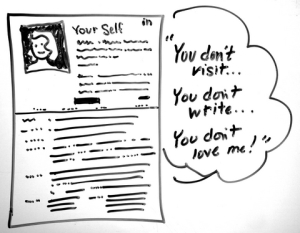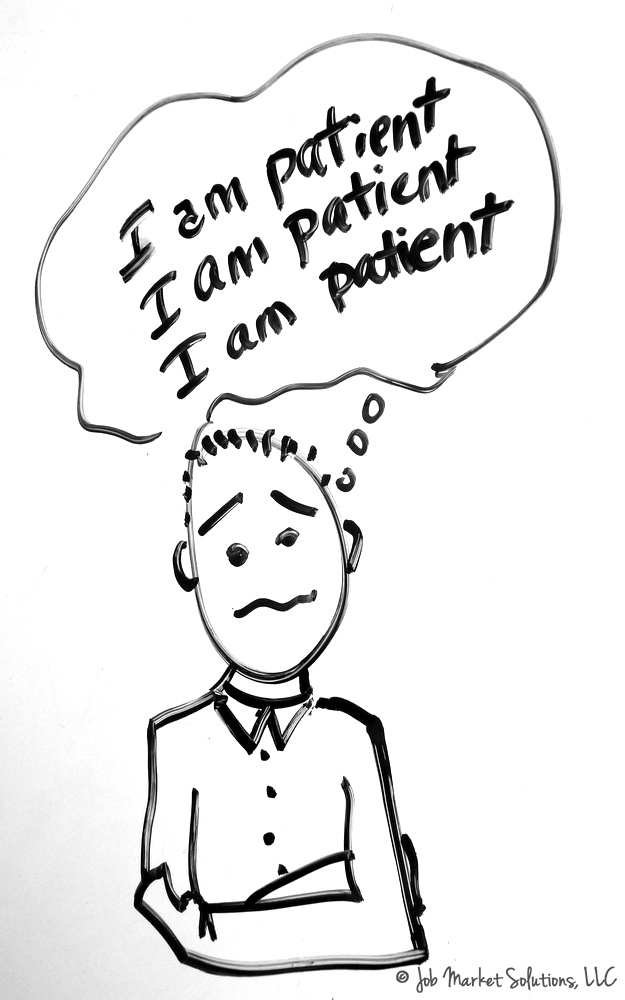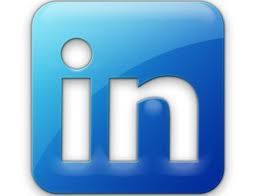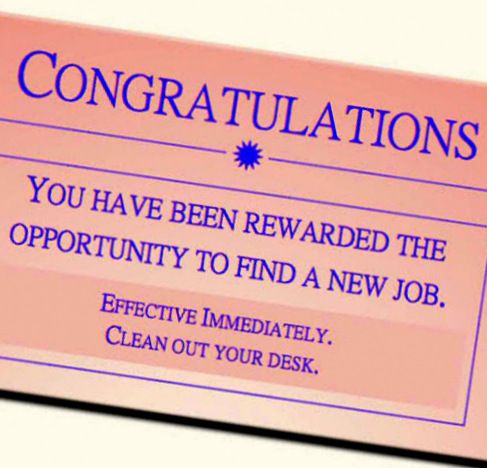
LinkedIn can do the heavy lifting for you.
Of course you have your profile on LinkedIn, right? And I hope it’s highlighting your skills, experience, talents and other hire-worthy attributes. But is it just sitting there looking boring, out-of-touch, or self-possessed?
If so, it will sabotage your career’s advancement.
Having a profile that shows how engaged and active you are places you ahead of other candidates in your field. So, take a moment to review your LinkedIn page against this checklist of common mistakes I’ve seen people make.
Time It Right
Are you writing off LinkedIn as a site for jobseekers? It does serve jobseekers but that doesn’t mean you should wait until you’re looking for work to build your brand. The best time to build your LinkedIn profile, connect with people, and participate on LinkedIn is now, before you need it.
If you find yourself suddenly unemployed and decide that now is the time to start using LinkedIn, you’re going to be playing catch up. Instead, take time to “dig your well before you’re thirsty,” as author Harvey Mackay says.
Participate
Don’t set it and forget it. Your LinkedIn profile is an evolving snapshot of you. You should be updating it regularly with new connections, status reports, and professional activity, especially within LinkedIn Groups.
Keep your profile fresh and changing. Check in on LinkedIn regularly, at least every other day if you are in active job search mode, and at least once a week if you are a passive jobseeker.
Then, plan on adding one new status update weekly. Make it as relevant, varied and as interesting as you can, but not as lightweight as your Twitter feed.
Look for Opportunities
Don’t be a wallflower. The more you engage with LinkedIn the more value it will be to your career. Stay on the lookout for chances to connect with thought leaders in your industry. Join three, four or five Groups and then participate in conversations there.
A good place to start is to join your alma mater’s official group and see what discussions are going on. It’s an easy way to expand your network. The more you participate in Groups, the more people will visit your profile.
Be a Giver
You can’t be selfish on LinkedIn and expect to make solid connections. So, focus on how you can help others instead of how they can help you.
The phrase “give to get” is very powerful on LinkedIn. You’ll earn the respect of your peers and people of influence if you help other people get what they want, either as introductions, news they can use, offers to mentor, inside information, encouragement, or congratulations.
Go Searching
Rather than waiting for others to find you, use the LinkedIn People Search function to look for people you know and invite them to connect with you.
I suggest you set a goal to add a specific number of new connections each week, and set aside a time to actively tend to this task.
Definitely follow up on people who have viewed your profile, sending them a note to say you noticed they visited your page, and ask if they would like to connect.
Research companies where you think you’d like to work and you might find they are looking for someone with your qualifications.
Link Up
Don’t forget to explore the people your connections know. It’s called LinkedIn for a reason. One of the site’s most powerful functions is the ability to connect with people who are connected to people you already know.
Be forewarned, however. If you don’t follow LinkedIn’s guidelines on connecting with these new people, your account could be flagged for spam. Use InMail or request connections through your mutual friend. Avoid LinkedIn generic messages, and instead write a customized, personal message for each person.
Don’t forget to link up any of these things on your profile page: your own blog, professional Twitter account, professional YouTube channel, website, or online portfolio.

Be Logical
Remember that it’s not a race to get 500 connections. Don’t be indiscriminate. Have a reason for each of the people you connect with. The person should be someone you already know or are related to, or someone it would be beneficial to network with.
If you aren’t familiar with someone, get to know him or her a bit before sending a request to connect. You can do this easily by seeing whom you both know. Try to bring something to the table as an inducement to connect.
You can also check out people’s LinkedIn summary and work history, and visit their website or blog. You can learn about them by studying what Groups they belong to. When you are interested in other people, you’ll be more interesting yourself.
Let LinkedIn Help
Make it a habit to check out LinkedIn Pulse. Visit www.linkedin.com/today/ and you’ll see a roundup of stories that LinkedIn thinks may interest you. These stories will help you stay current with changes in your industry.
Recommend
One polite and beneficial way to build a strong network is to acknowledge and recognize the contributions of people you know. Give them unsolicited, genuine Recommendations and Endorsements. Everyone appreciates these. It’s a win/win move.
Spin Off
LinkedIn is a handy place to start building face-to-face relationships. Don’t restrict your networking to online only. You can use LinkedIn to initially connect with people, and then request a casual meeting in a public place or office setting. Meet for coffee, lunch, drinks, an informational interview, or just to catch up.
Granted, LinkedIn can be annoying in the way it is constantly changing and is often misused by spammers and people with no social etiquette. But you can’t afford to ignore it if you are serious about your career. You took the time and effort to create your LinkedIn profile. Now, put this powerful site to work for you.
And if you need a LinkedIn makeover, I can do that for you.











 Your company is bought or merged into another company and there is a lot of duplication in job titles or functions within both companies. Usually, the acquiring company’s employees will be the ones to stay.
Your company is bought or merged into another company and there is a lot of duplication in job titles or functions within both companies. Usually, the acquiring company’s employees will be the ones to stay. Create or update your LinkedIn profile, but be careful about doing too much at once while you’re still employed. It looks suspicious if you go from a new profile to having 200 new connections in a week. Don’t draw attention to yourself by populating your profile overnight.
Create or update your LinkedIn profile, but be careful about doing too much at once while you’re still employed. It looks suspicious if you go from a new profile to having 200 new connections in a week. Don’t draw attention to yourself by populating your profile overnight.




 Take several deep breaths before the call. And do not forget to breathe during the call. This can help lower your voice pitch.
Take several deep breaths before the call. And do not forget to breathe during the call. This can help lower your voice pitch.
 Big mistake.
Big mistake.